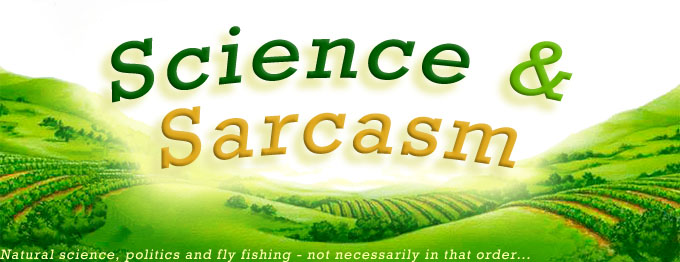Anything of value must be 'engineered.'
I read an article in a local paper a couple of weeks ago about a university researcher who 'discovered' a soil fungus that has potential for improving the efficiency with which plants take up nitrogen. The article was more or less based on a short article published in the June 9 issue of Nature and a subsequent interview with a couple of its authors. It's an interesting paper and is discussed in part elsewhere. The local newspaper article I read was typically disappointing and that's where I place my focus here. The journalist portrayed the scientists as super-human heroes and the technological potential of their ideas, glamorous and limitless. After fitting a few quotes from two of the Nature authors about the complexity of nature and the need to make better use of natural systems, the journalist glosses over his own words and most of the technical detail and ends his newspaper article with:
Lammers said the ultimate goal is to be able to genetically modify the fungi to increase their level of interaction with plants, although Shachar-Hill said the fungi could be capable of higher levels already.
At first this newspaper article didn't capture my attention. It's another typically oversimplified, cookie-cutter summary of some detailed biological research meant to make readers hope, one day in some shiny plastic future, we'll be able to 'save' and 'improve' ourselves by applying their new discoveries to our everyday lives. Give me a break. But then the absurdity of the last line, within and without the context of the article, really annoyed me and started me on this little rant...
Problem #1: Now, for the record, I'm a scientist too. I certainly don't mean to slam everyone in the broad field of scientific endeavor, but isn't there a saner way to approach scientific inquiry than to set out to 're-engineer' nature? Why are our objectives so often to 're-engineer' some existing biological organism or system (or worse yet, to create a new organism or system)? The creatures, chemicals, and communities currently in place have developed and adapted over hundreds of millions of years of selective evolutionary pressures; do we really think we are likely to 'improve' on these designs in a decade or two of molecular re-organization? Are we really so vain? Apparently many of us are. I am not really arguing that we should abandon these fields tout suite as I'm confident suitable applications exist. But jeez-o-pete, sometimes our vanity is simply astonishing. I won't go any further than to mention that we also are mostly clueless about the long-term and cascading effects an 'engineered' organism or chemical has on its immediate community and on the larger environmental landscape.
Can we please spend a little more time studying existing natural organisms and systems and identify the ways we can gently nudge them and continue to coexist with them? Do we really think we've completed this phase of biological research? I think many of us are under the impression that we already understand everything in nature and now we're ready to make and introduce new chemicals and organisms into the world. We're not. There are millions of things we still don't know. We still don't understand how cells differentiate or how our brains remember things. We still can't provide some really practical services like curing the common cold, predicting earthquakes or cleaning up our messy environment. Do we need to rearrange DNA to find these answers? I doubt it. I think we need to ask more questions, ask smarter questions, and access adequate funding while reducing corporate influences and reducing our overemphasis of short-term impacts. Pretty simple, eh?
Problem #2: And isn't there another way to communicate our work and our ideas to the general public than to appear in these ridiculously over-simplified news articles? I also don't want to slam the field of journalism, though it's often tempting. We've come to expect these insipid, sweet-but-flavorless, descriptions of scientific progress and potential. I bet the scientists and journalists themselves don't even recognize what an incredibly bad service they're providing as they're creating these awful documents. Perhaps we've reached the point in our technological specializations where we need a better 'go-between' to communicate information from the scientists who've discovered it to the public at large. I don't think it's a ridiculous idea to think we could easily accomplish this. We all know where to find a Coke and what the Nike logo looks like. Can we maybe communicate some important scientific findings even a tenth as effectively?
In order to accomplish this goal, we'll probably have to train a new category of professionals. Or we'll have to train journalists, teachers, and other agents a bit better in this way. The current systems train scientists to communicate well with each other, but not with anyone else. And we inform and educate the general population on only the most basic, anecdotal portions of our enormous pool of scientific understanding. It seems we've lost our collective understanding of the scientific method, evolution, cause-and-effect relationships, etc. Even I, as a scientist, am left unable to differentiate myth from fact on some unfamiliar topics. Most of us received our basic scientific training in elementary and high school and in college if we were lucky enough to have attended. After that, scientific understanding is rarely revisited or reinforced unless we involve ourselves directly in the field. We have very limited access to science and scientific findings after completing our formal education. I think we need well-trained communicators to bridge this gap.
I would enjoy your comments...
The Fly Fishing Loop is sponsored by flydepot.com
[ Home Waters | Next | Random | List | Search ]

This work is licensed under a Creative Commons Attribution-NonCommercial-ShareAlike 2.5 License.





